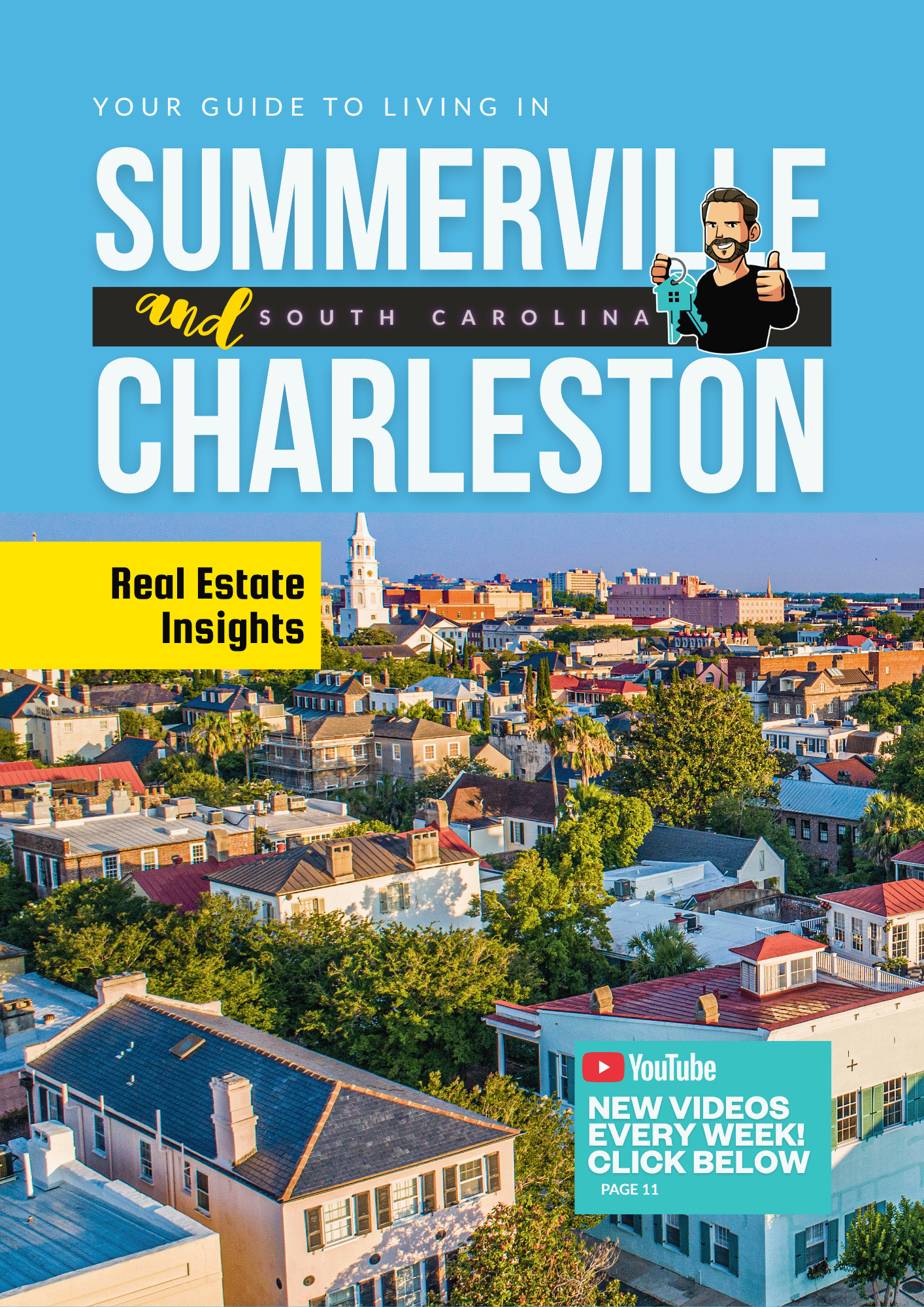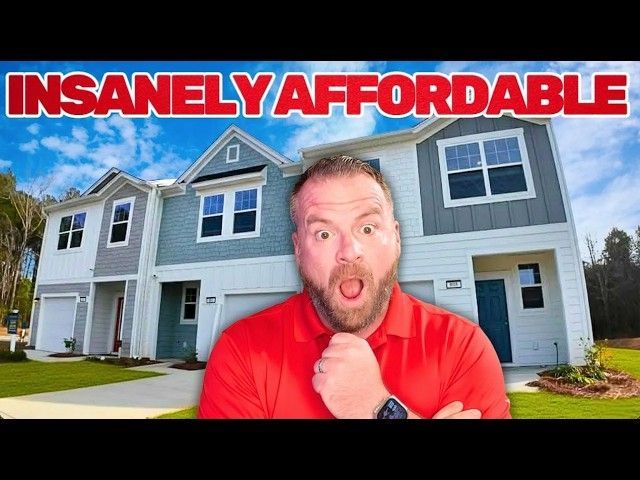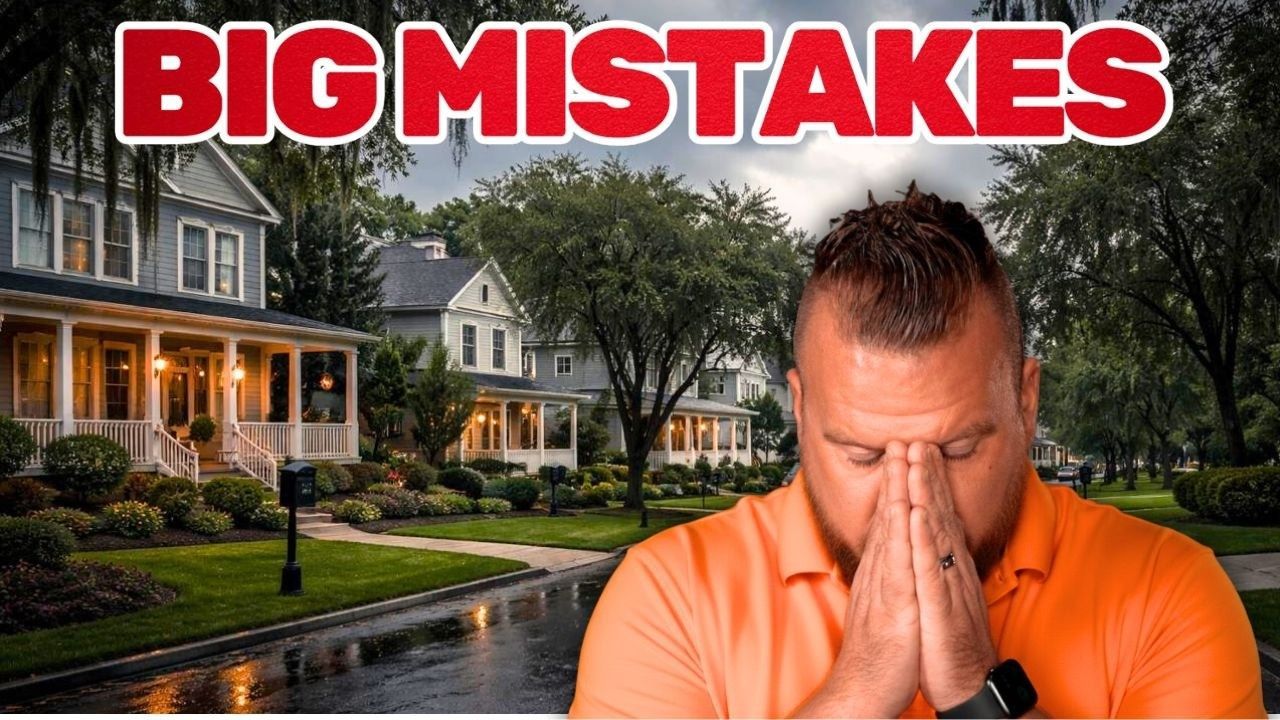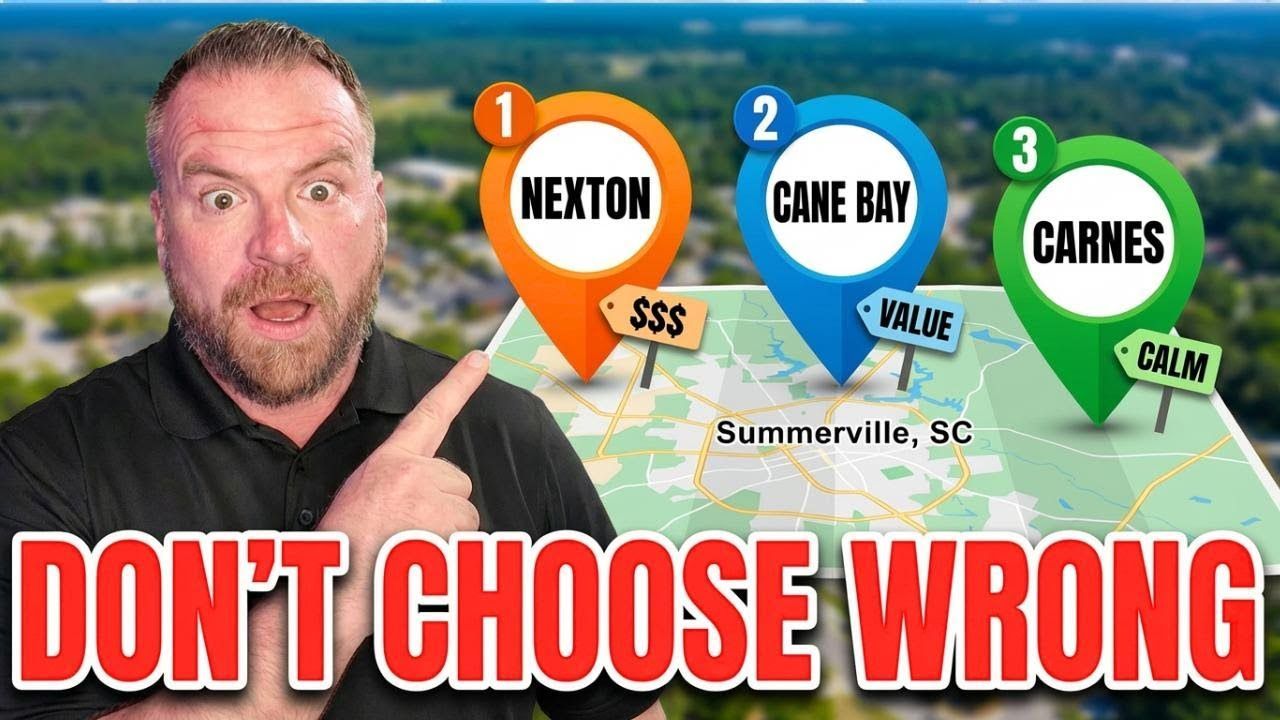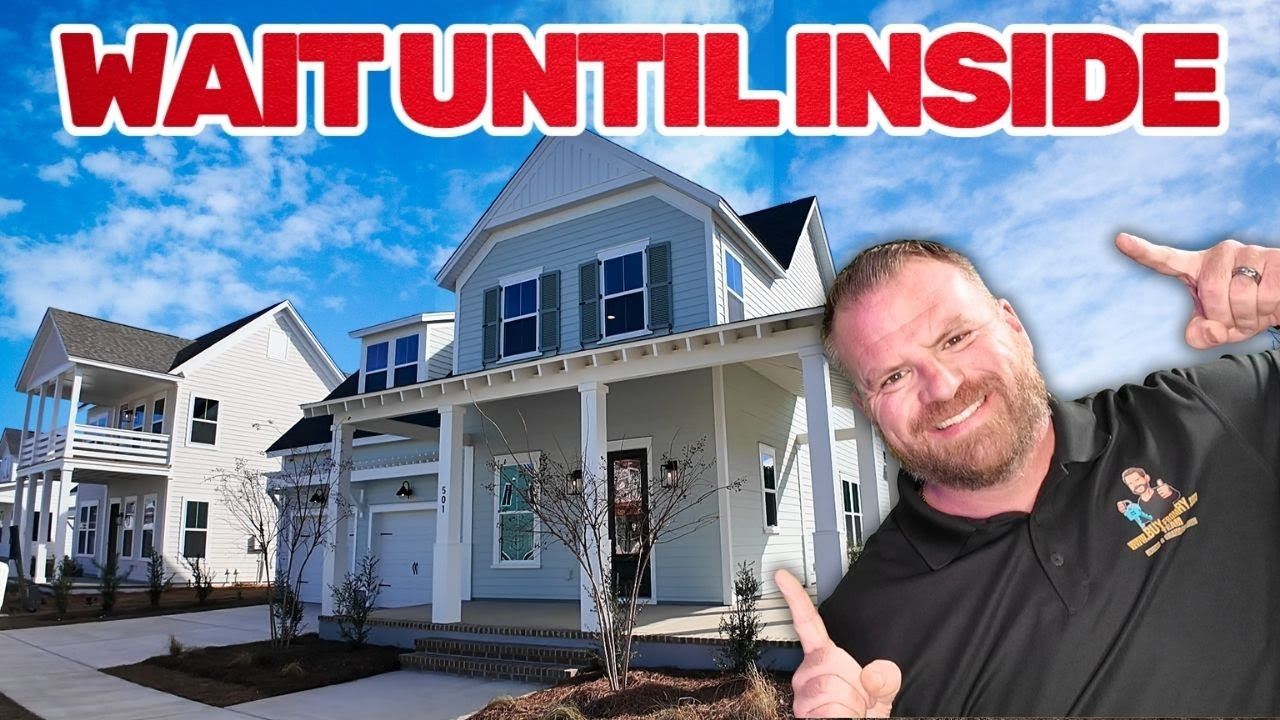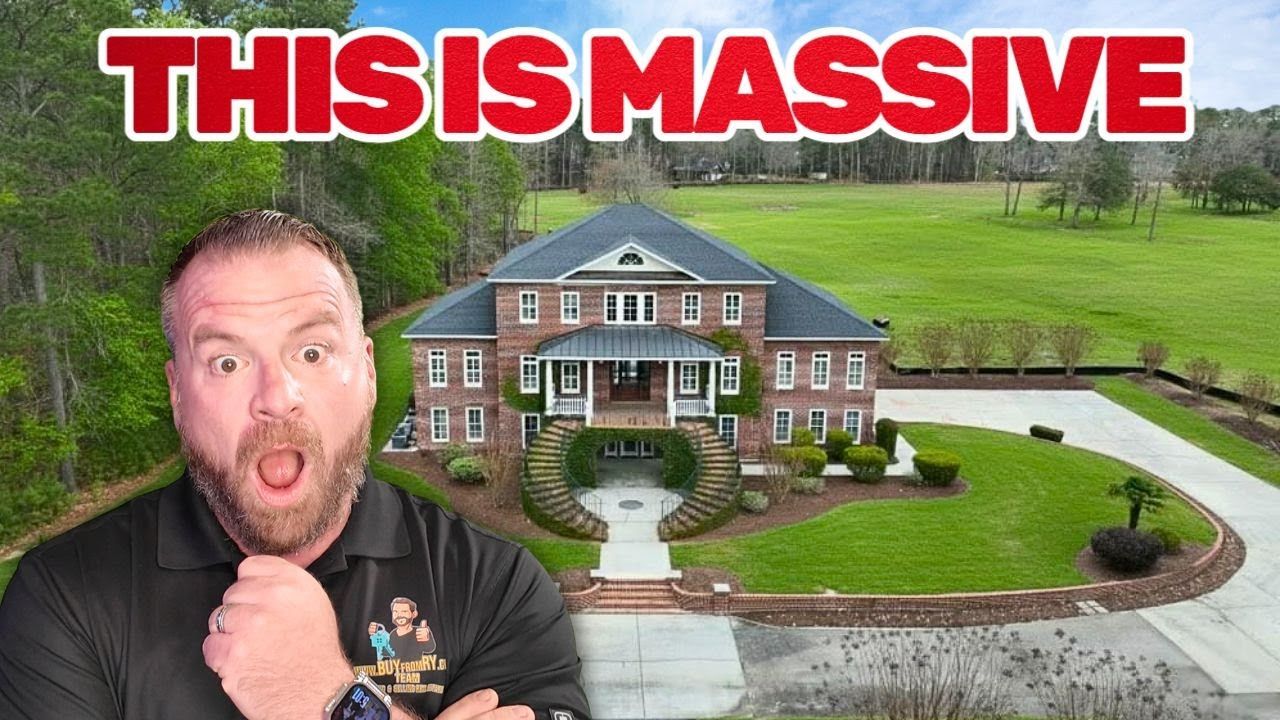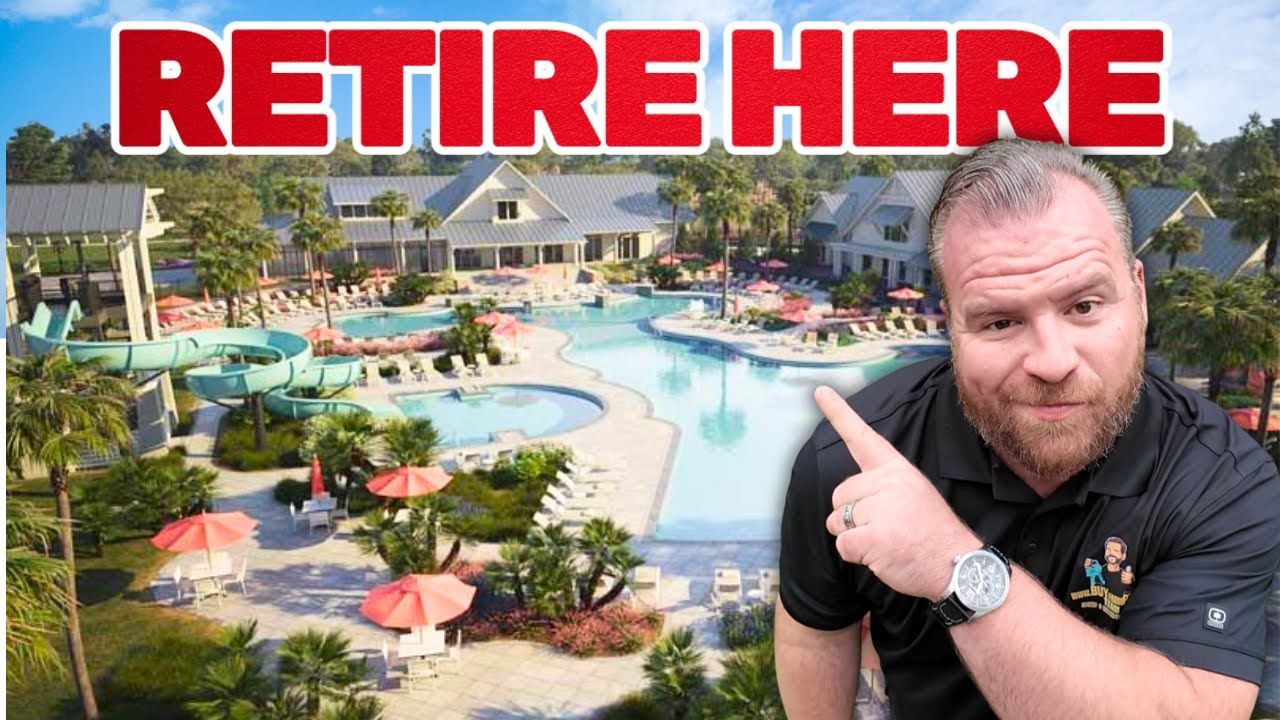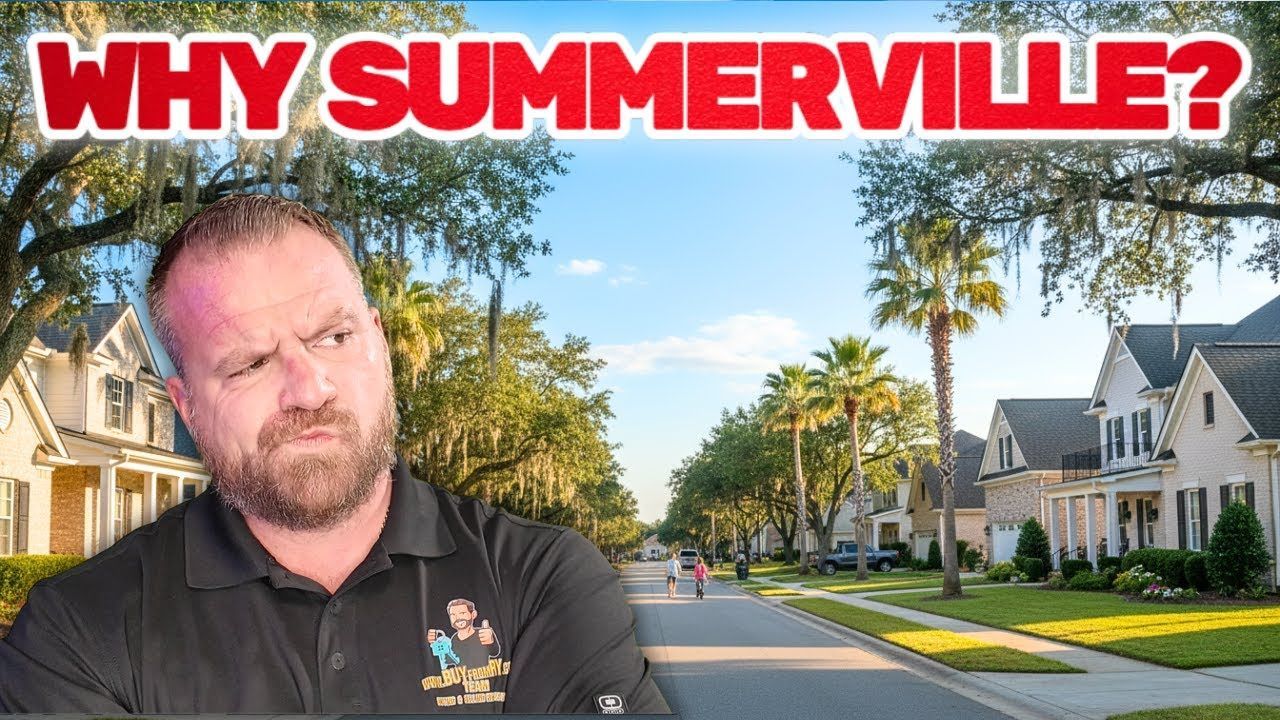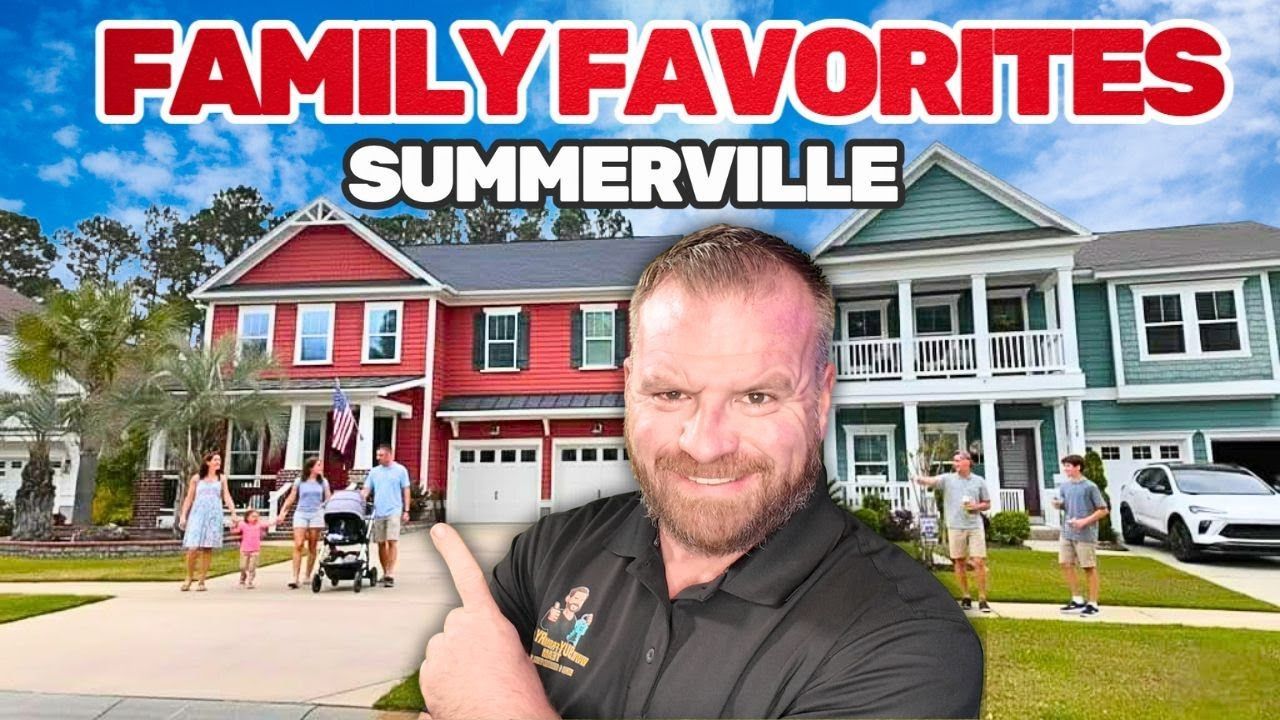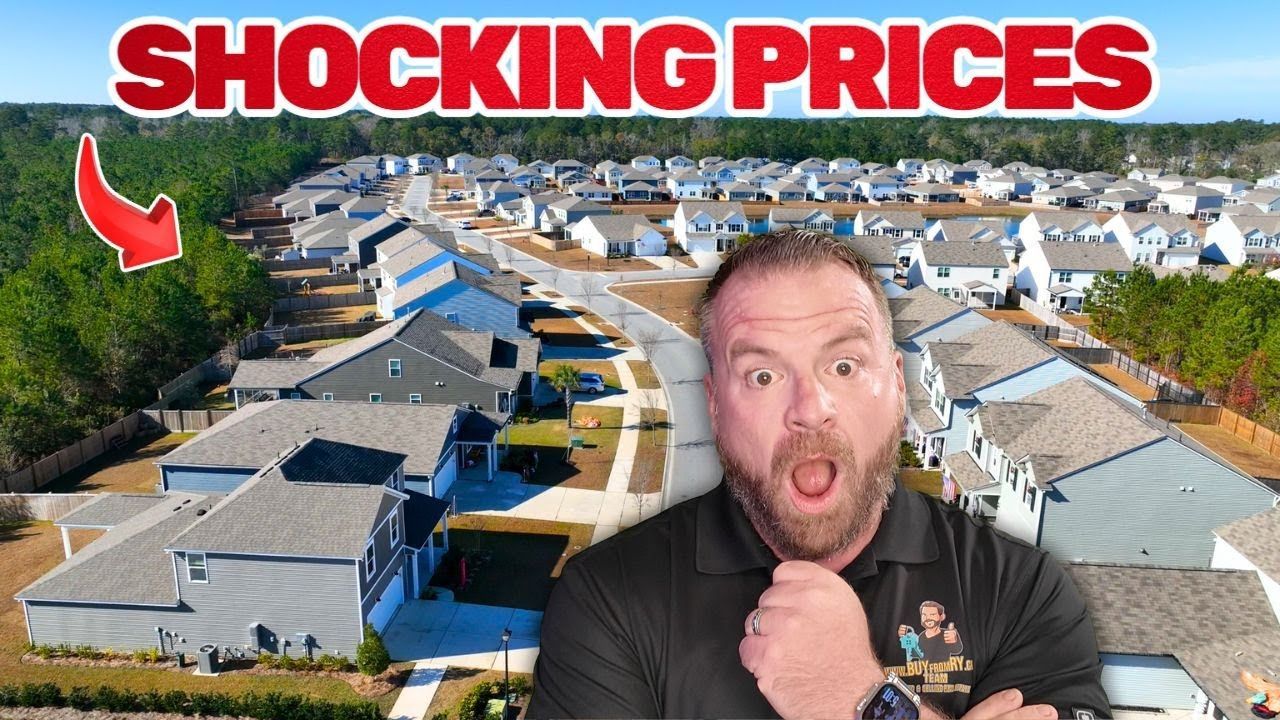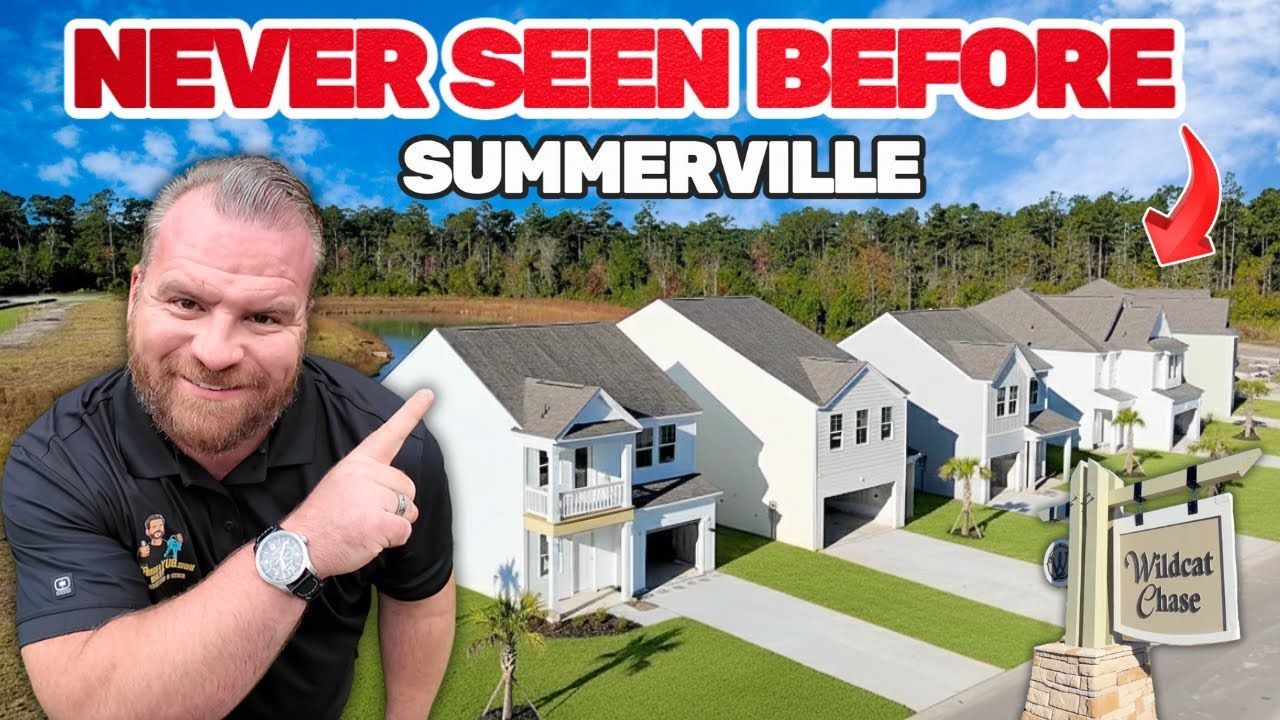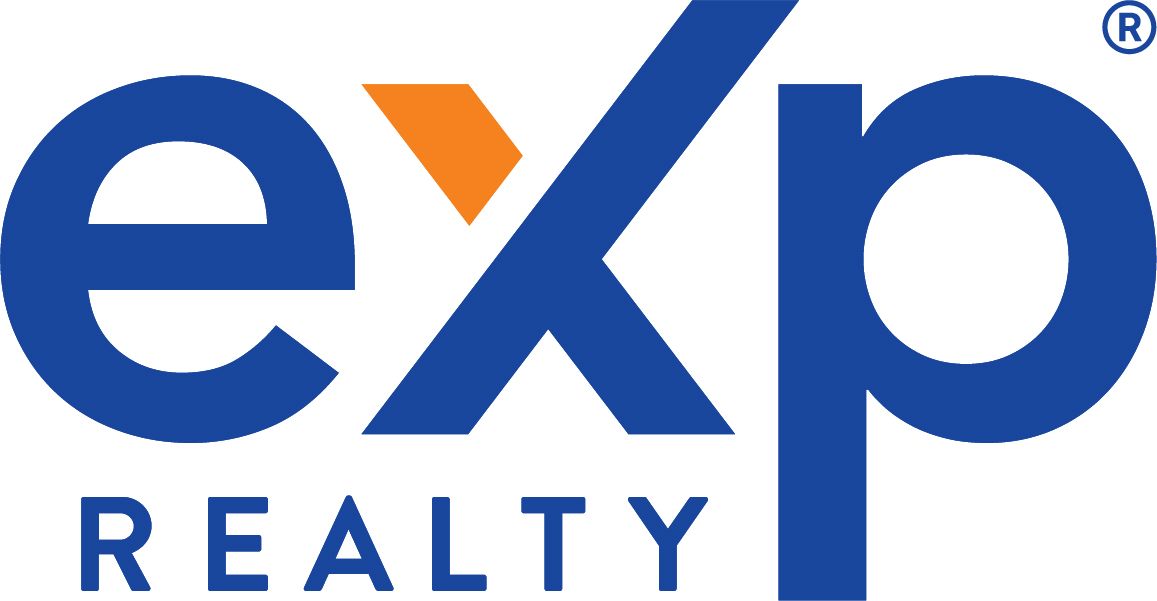Is Summerville the Best Place to Live Near Charleston in 2025?
If you’re thinking about moving to the Charleston area, you’ve probably heard the same thing I hear every week: "Summerville is the place to move!" But is it really the right choice for you in 2025? In this deep-dive guide I’ll walk you through the competition, lifestyle trade-offs, housing market realities, commute pain points, schools, hidden costs, insurance and tax nuances, and the intangible things that actually make a place feel like home. Consider this your no-nonsense, experienced local’s take — the kind of advice I wish people had watched before they packed up hundreds of thousands of dollars worth of decisions based on a Facebook post or a cousin’s opinion.
Table of Contents
- Who’s Competing With Summerville for the Best Place to Live in SC?
- Lifestyle & Vibe: What Does Summerville Feel Like?
- Summerville Housing Market
- Commute Times in Summerville
- Why Many Families Choose Summerville
- Hidden Costs of Living in Summerville
- Insurance & Property Taxes: South Carolina vs North Carolina
- Does Summerville Actually Fit Your Lifestyle?
- My Final Verdict: Would I Move to Summerville in 2025?
- FAQ: Living in Summerville, SC
- Final Thoughts on Moving to Summerville
Who’s Competing With Summerville for the Best Place to Live in SC?
When you type Summerville into Google and start planning your relocation, you’re not just choosing between neighborhoods — you’re competing with a handful of other regional markets for your attention and your budget. The typical buyer comparing Summerville is usually a family or someone relocating for work. The main competitors I see are:
- Mount Pleasant — the high-end coastal alternative with top-tier schools
- Greenville — upstate option with lower prices and growing commercial activity
- Bluffton — low-country, coastal retirement-heavy market with Hilton Head access
- Wilmington, NC — beach town with college-town energy and seasonal traffic
- Columbia — cheaper housing across many neighborhoods and a different regional economy
Why does this matter? Because when families are trying to decide between Summerville and Columbia or Greenville, the comparison often comes down to how much home they can get for their money and whether they prioritize beaches and coastal lifestyle or inland affordability and acreage.
Lifestyle & Vibe: What Does Summerville Feel Like?
If I had to sum up Summerville in one sentence: it’s suburban, family-driven, full of master-planned communities, and laid-back. Think golf carts to the local restaurant, chilled evenings, neighborhood socials, and walkable community centers in many subdivisions. Summerville is built for families who want space, good schools (depending on the zone), and Charleston access without the nonstop bustle of downtown.
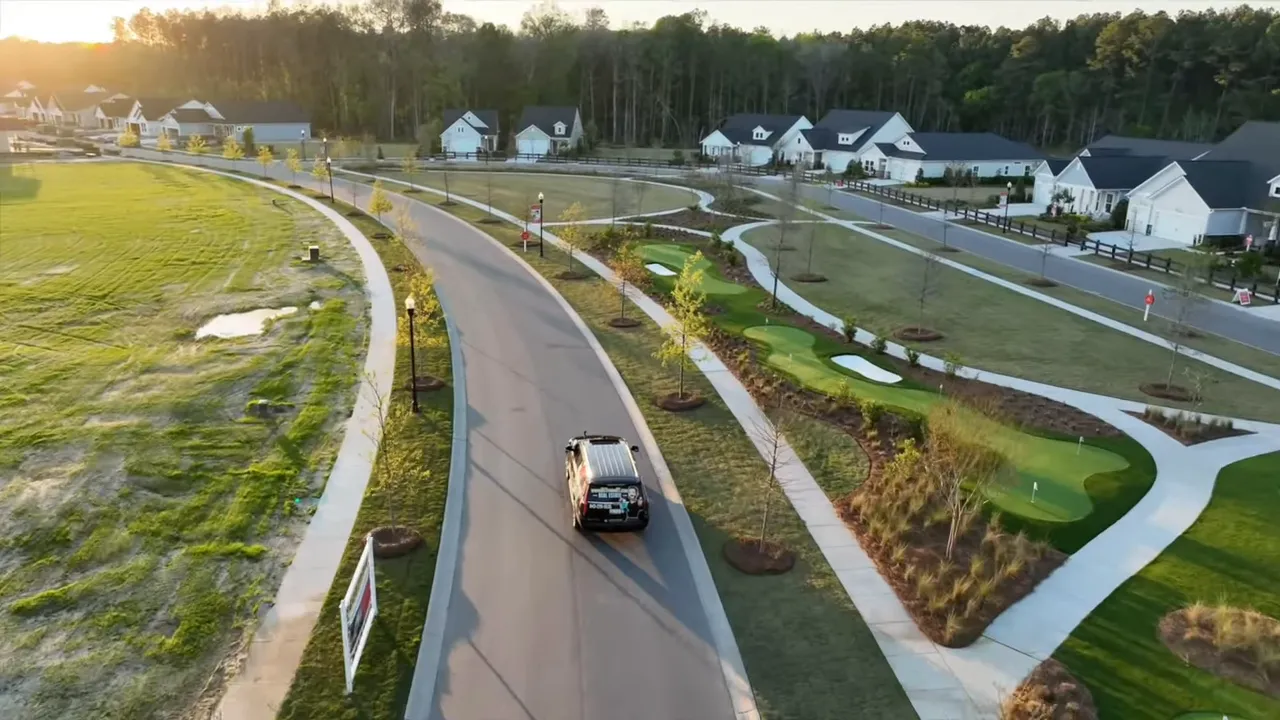
Compare that to Mount Pleasant, which is more polished and higher-end. Mount Pleasant has top-rated schools, amazing proximity to the beaches (you can be five minutes from Isle of Palms in parts like Oyster Point), and a lifestyle that carries a premium. You're often paying double or triple the price per square foot compared to Summerville for that level of proximity and polish.
Greenville, on the other hand, gives you mountain-adjacent vibes, an emerging foodie scene, and less expensive commercial land — which is why many small business owners choose Greenville or Columbia to open restaurants rather than paying premium Charleston-area rents.
Bluffton is coastal and retirement-heavy. If you want daily access to Hilton Head, golf communities, and a beach-town rhythm without being deep in the busy Charleston corridor, Bluffton is a strong choice for retirees and those seeking coastal living.
Wilmington is a true beach town with college-town energy — it's seasonal, it has bridges and evacuation routes that can cause backups, but it offers a distinct coastal lifestyle some people prefer over Charleston proper.
Summerville Housing Market
Let’s talk dollars. Summerville still offers a very compelling price-to-space ratio — especially if you’re open to new construction. Right now builders are offering incentives: interest rate buy-downs, appliance packages (yes, I’ve been seeing washers/dryers and fridges included), and other concessions. For buyers willing to wait for a presale and select smart options, new builds can be a phenomenal value.
Mount Pleasant is another story. You’ll often pay double or triple per square foot. I once searched for a house the exact size and lot as mine in Mount Pleasant — same square footage, similar lot — and the list price was around $1.6 million. That’s typically without the custom upgrades many people add. If you want water access and that close-to-beach lifestyle, it comes with a steep premium.
Bluffton prices are climbing fast thanks to retiree demand and large active-lifestyle communities (Margaritaville, Del Webb, etc.). Greenville remains relatively affordable but it’s heating up quickly, too. Columbia remains cheaper than Summerville in most stretches — you can often trade $600k in Summerville for a larger lot and more space upstate or inland.
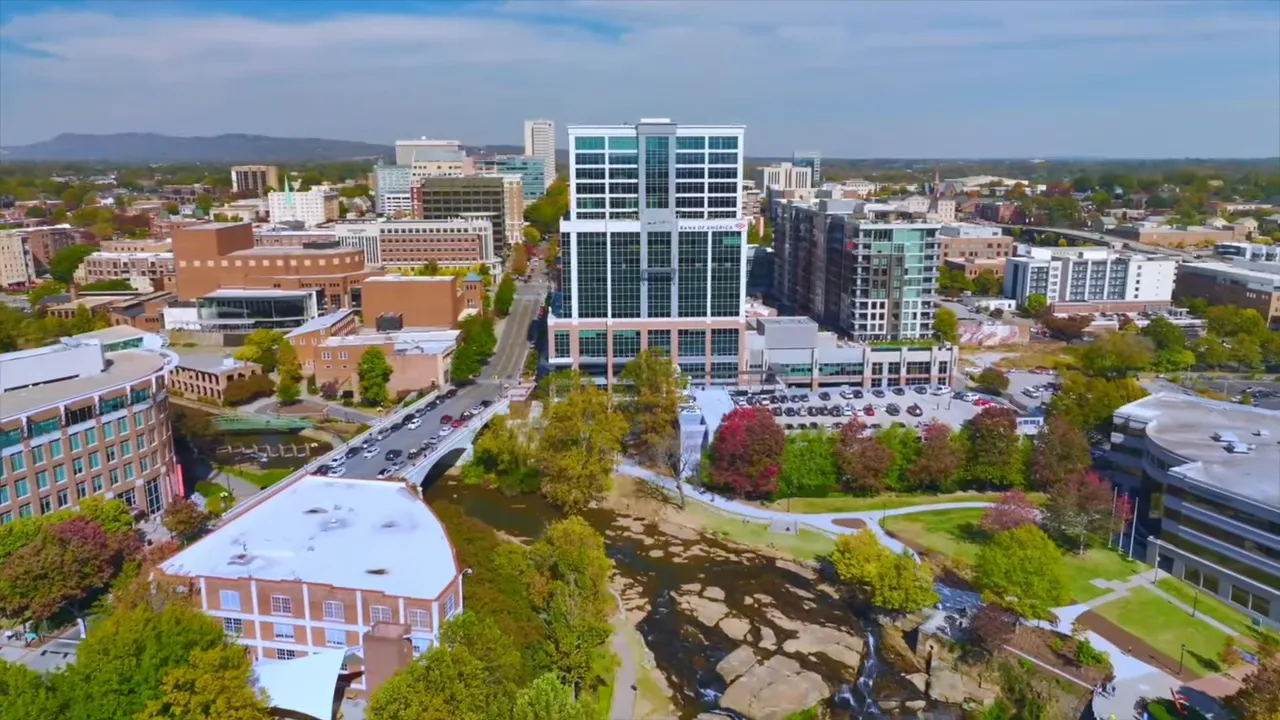
One big plus for Summerville: Berkeley County is generally one of the most affordable counties in South Carolina when it comes to property taxes and insurance premiums. Flood insurance in many areas of Berkeley County can be surprisingly low — I pay about $400/year for my flood policy — so while flood zone presence matters, it’s not always the budget-buster people expect.
Commute Times in Summerville
If you live in Summerville, I-26 becomes part of your routine — and sometimes your part-time job. If you’re commuting into North Charleston or downtown Charleston, that highway will be a central artery. Leave at 7:00 a.m. and if you get there "by Thursday," you did well — that’s my joke for the often-unpredictable traffic.
Mount Pleasant has its own choke points: the Ravenel Bridge and Highway 41 areas can get packed at almost any time of day. There’s talk about widening 41 to four lanes — something similar to the State Road expansion that helped relieve pressure in Summerville — but for now, expect regular congestion.
Greenville’s commuting is surprisingly manageable for now, and Bluffton — despite seasonal tourist traffic — generally gets around okay outside of peak vacation windows. Wilmington has bridges and evacuation routes that can create bottlenecks, and downtown Charleston’s peninsula living offers walkability but at a higher price tag.
Why Many Families Choose Summerville
My family moved for lifestyle and schools. We were done with long winters and wanted space to raise kids, and Summerville checked a lot of boxes: proximity to the beach, better year-round weather, and neighborhoods where kids can ride bikes and families connect. Summerville’s school quality is very neighborhood-dependent — there are excellent zones and not-so-great zones — so your specific neighborhood matters far more than the town name on the mailbox.
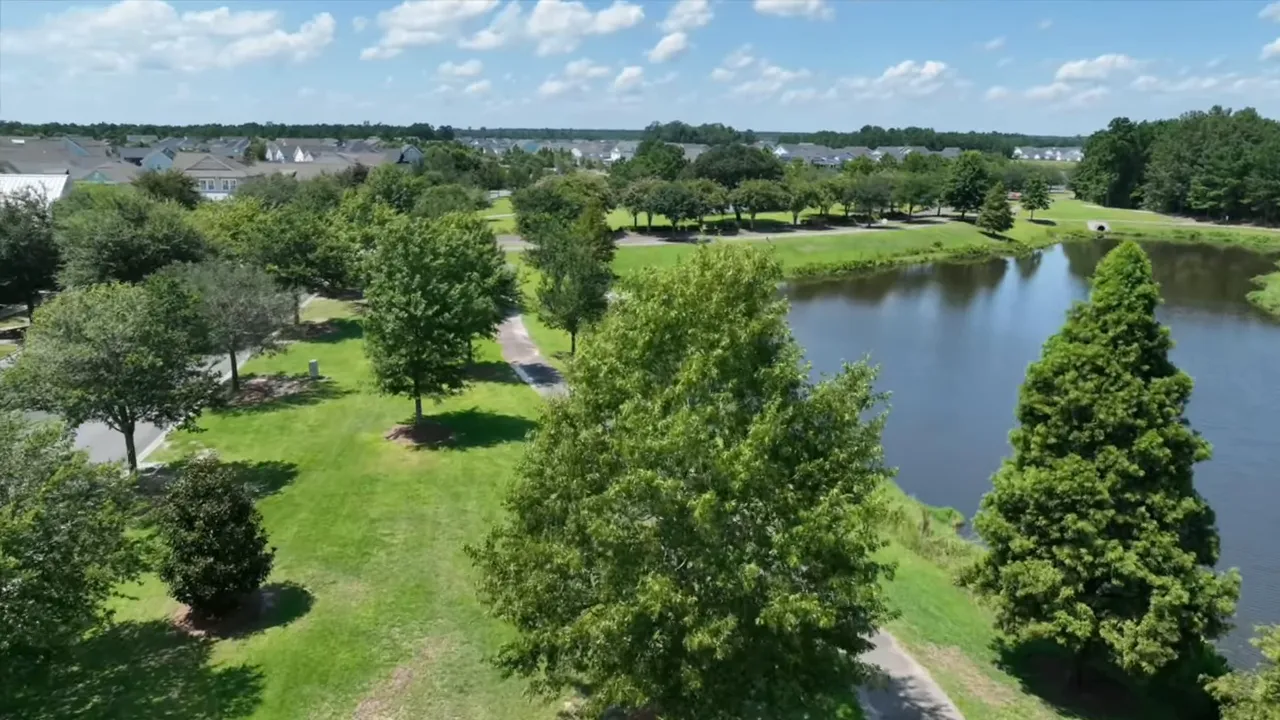
Mount Pleasant often takes the crown for public school quality in the Charleston area. Some of the campuses look more like college facilities than public schools — top-notch amenities, advanced programming, and high ratings. Greenville is known for competitive charter school options and improving districts, with teachers relocating from other parts of the country to help raise standards.
Bluffton has a strong private school demand due to retiree-focused development — there are private schools, but sometimes insufficient capacity for rapid population growth. Wilmington has decent schools but wide variance across neighborhoods. Columbia has some very well-rated schools as well as some weaker spots; like Summerville, it’s location and zone specific.
Hidden Costs of Living in Summerville
Moving to the Lowcountry or coastal Southeast comes with a handful of costs people often overlook:
- Flood zones: Many coastal and low-lying neighborhoods are in FEMA flood zones. If you’re financing a home in a flood zone, your lender will require flood insurance. Even if you pay cash, getting flood insurance is a smart idea — but it’s an added ongoing cost.
- Hurricane prep: Stockpiling supplies, shutters, generators, and making periodic preparations adds an annual rhythm of expense that northern movers may not anticipate.
- HOAs: Master-planned communities often have strict HOA rules and fines. I learned that the hard way — yes, I got fined over the “wrong color pillows” on my porch. Read HOA documents and visit neighborhoods at different times of day to get a feel for enforcement.
- Insurance increases: Homeowner premiums and availability are shifting as insurers pull back from higher-risk markets, and reinsurance costs push premiums up.
- Reassessments: Property tax reassessments can be a surprise if you aren’t aware of local schedules and caps (covered below).
Insurance & Property Taxes: South Carolina vs North Carolina
If the state matters to your financial plan, here’s what I tell people:
- South Carolina tends to have lower property taxes for owner-occupied homes, largely due to assessment rules that tax primary residences at 4% of market value for assessment purposes and secondary homes at 6%.
- South Carolina offers a generous homestead exemption — $50,000 off your home’s value if you’re 65+, disabled, or legally blind — which is meaningful for retirees.
- SC reassesses properties every five years with a cap that limits increases to 15% unless the home sells, which protects homeowners from rapid tax spikes in a hot market.
- North Carolina applies tax rates differently (at 100% market value and no capped reassessments in many counties), which can mean higher effective taxes and unpredictable hikes in booming markets.
Insurance is another major variable. Hurricane exposure, rising rebuild costs, inflation, and higher claim frequency (including fraud concerns) have made some carriers pull back from parts of the Charleston/Coastal market. Less competition means higher premiums and fewer options — and sometimes agents saying they won’t write new policies in certain areas. That’s a huge factor buyers should check before putting in an offer.
Does Summerville Actually Fit Your Lifestyle?
Beyond spreadsheets and commute maps, the biggest decision often comes down to intangible lifestyle fit. Ask yourself:
- Do you want a family-focused, master plan lifestyle with-yard space and a slower pace? Summerville.
- Do you want status, proximity to the beach, and top-tier schools? Mount Pleasant or Bluffton.
- Do you want the best investment upside and affordability for flips or rentals? Look at Greenville or Columbia.
- Do you want coastal plus college-town energy and walkability near water? Wilmington.
- Do you want downtown historic Charleston charm and walkability and will pay a premium for it? Charleston peninsula.
-
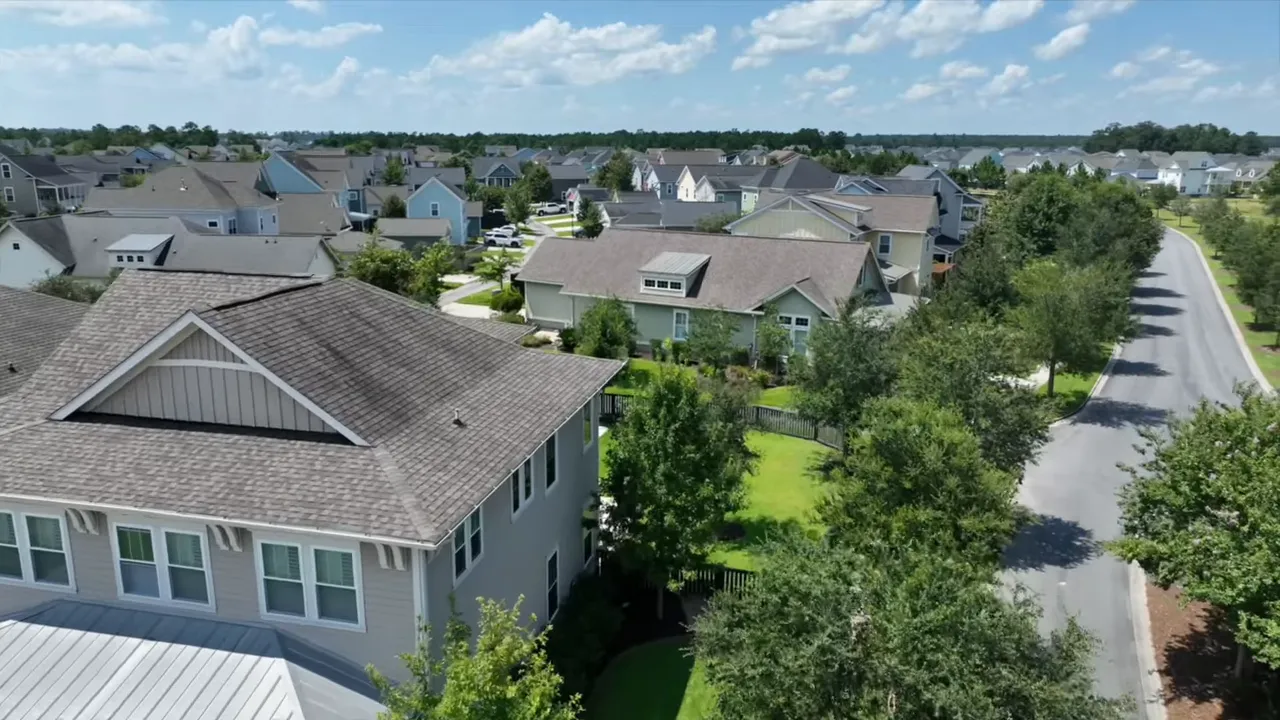
Your priorities should guide the decision: family-friendly neighborhoods, school zones, commute tolerance, property tax preferences, and whether you can handle seasonal tourism traffic or want quieter suburban living.
My Final Verdict: Would I Move to Summerville in 2025?
Short answer: Yes — with caveats. Summerville offers a balanced mix of affordability, proximity to Charleston and beaches, family-friendly neighborhoods, and reasonable tax and insurance situations in many parts of Berkeley County. It’s a solid middle ground: not as expensive as Mount Pleasant, more suburban and family-driven than downtown Charleston, and with better access to Southern Lowcountry lifestyle than many inland alternatives.
However, the magic is in the details. Neighborhood selection matters. If you’re sensitive about commutes, plan routes and times you’ll be traveling daily. If schools are top of mind, research zones and visit campuses in person. And if you’re budgeting for unexpected expenses, don’t forget flood insurance, hurricane prep, and HOA fees.
FAQ: Living in Summerville, SC
Is Summerville cheaper than Mount Pleasant?
Generally, yes. Summerville typically offers much better price-per-square-foot value than Mount Pleasant. Mount Pleasant often costs double or triple per square foot depending on neighborhood and proximity to water.
Should I buy new construction or a pre-owned home in Summerville?
Right now, new construction can be an excellent deal. Builders are offering incentives such as interest rate buydowns and appliance packages. But always compare total cost, location, and builder reputation before committing.
Are flood insurance costs always high in Summerville?
Not always. Flood insurance depends on the specific FEMA flood zone. In many parts of Berkeley County, flood premiums can be relatively low — I personally pay about $400/year — but always verify for the specific property you’re considering.
How bad is traffic from Summerville to Charleston?
I-26 is your primary route and it can get congested, especially during peak hours. Traffic patterns fluctuate, so time your commute windows and consider flexible schedules when possible.
Are property taxes lower in South Carolina compared to North Carolina?
For primary residences, South Carolina generally provides a tax advantage due to assessment rules and exemptions. SC primary residences are taxed at a 4% assessment rate with a five-year reassessment cap, while North Carolina applies different rules that can result in higher effective taxes in some counties.
What area is best for retirees?
Bluffton is very retiree-focused with large active adult communities and quick access to Hilton Head. South Carolina's tax and assessment advantages can also appeal to retirees statewide.
If I want the best investment upside, which market should I consider?
Greenville and select parts of Columbia are showing growth and affordability that can produce better returns. Summerville is stable and balanced, but if flipping or significant appreciation is your primary goal, consider markets that are rapidly expanding commercial and residential demand.
Final Thoughts on Moving to Summerville
Summerville in 2025 still stands out as a balanced, family-friendly option for people who want Charleston-area access without the high sticker shock. But "Summerville" isn’t a one-size-fits-all answer. The exact neighborhood, builder, and commute plan will determine whether it’s the perfect fit for you. Do your homework: drive neighborhoods at different times, check school zones, ask about flood maps and insurance quotes, read HOA documents, and get pre-approval before you fall in love with a listing. If neighborhood choice is your top priority, do the deep dive — it will pay off.
If you’re moving soon, be strategic and intentional. The right choice will deliver lifestyle improvements — not just a social media brag line.
Ryan McHugh
After transitioning from a successful career at Apple to pursuing his passion for real estate, Ryan McHugh has become a trusted guide for buyers and sellers in the Charleston area. He’s dedicated to helping families find the perfect home in this vibrant community.
LIVING IN summerville/charleston,sc
Discover Ryan Mchugh's latest video for professional insights into the Summerville or Charleston, SC real estate market!

